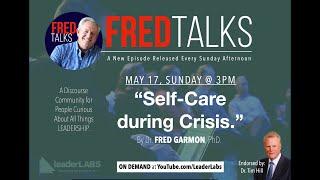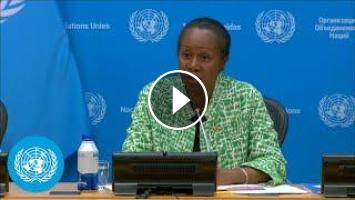Press Conference by Clementine Nkweta-Salami, Humanitarian Coordinator for Sudan, on the Humanitarian Situation in Sudan.
The Resident and Humanitarian Coordinator for Sudan, Clementine Nkweta-Salami today (15 May) told journalists in New York that “after more than a year of conflict, the people of Sudan are trapped in an inferno of brutal violence,” with famine, diseases, and fighting “closing in.”
Giving an update on the situation in El-Fasher, the capital of North Darfur, Nkweta-Salami said, “clashes over the weekend reportedly caused dozens of civilian casualties. Many more were displaced. Most seeking safety in the southern part of the city.”
If the parties “do not pull back from the brink,” she said, “this will have devastating consequences for the 800,000 civilians in El-Fasher.”
Nkweta-Salami said, “more than a dozen trucks, carrying health, nutrition and other critical supplies for more than 120,000 people have been trying to reach the city for weeks.”
Khartoum, she said, “has been decimated” and “no one and nothing has been spared.”
The humanitarian coordinator said, “horrific atrocities are being committed with reckless abandon. Reports of rape, torture and ethnically motivated violence are streaming in. Indiscriminate attacks are killing civilians, including young children. Sudan is now today, the world's largest displacement crisis.”
Almost 9 million people, she said, “have been forced to flee to other parts of Sudan or neighbouring countries.”
Nkweta-Salami noted that operations are taking place “against the backdrop of an imminent rainy season,” with roads becoming “impassable” in June and July.
She said, “what we're trying to do is to make sure we can preposition - and the stocks here not only food, its water, its nutritional supplies, its water and sanitation equipment, WASH equipment as well - that will allow us to address the needs of the population in an integrated manner.”
Nkweta-Salami said, “so, do we have stocks? No. Do we need to get stocks in? As quickly as possible.”
On April 15th, 2023, violent clashes erupted between the Sudanese Armed Forces (SAF) and the paramilitary Rapid Support Forces (RSF) in Sudan, resulting in the displacement of more than 8.6 million people, including internally displaced people (IDPs), asylum seekers and refugees. This conflict exacerbated many of Sudan’s existing challenges, including ongoing conflicts, disease outbreaks, economic and political instability, and climate emergencies.
The Resident and Humanitarian Coordinator for Sudan, Clementine Nkweta-Salami today (15 May) told journalists in New York that “after more than a year of conflict, the people of Sudan are trapped in an inferno of brutal violence,” with famine, diseases, and fighting “closing in.”
Giving an update on the situation in El-Fasher, the capital of North Darfur, Nkweta-Salami said, “clashes over the weekend reportedly caused dozens of civilian casualties. Many more were displaced. Most seeking safety in the southern part of the city.”
If the parties “do not pull back from the brink,” she said, “this will have devastating consequences for the 800,000 civilians in El-Fasher.”
Nkweta-Salami said, “more than a dozen trucks, carrying health, nutrition and other critical supplies for more than 120,000 people have been trying to reach the city for weeks.”
Khartoum, she said, “has been decimated” and “no one and nothing has been spared.”
The humanitarian coordinator said, “horrific atrocities are being committed with reckless abandon. Reports of rape, torture and ethnically motivated violence are streaming in. Indiscriminate attacks are killing civilians, including young children. Sudan is now today, the world's largest displacement crisis.”
Almost 9 million people, she said, “have been forced to flee to other parts of Sudan or neighbouring countries.”
Nkweta-Salami noted that operations are taking place “against the backdrop of an imminent rainy season,” with roads becoming “impassable” in June and July.
She said, “what we're trying to do is to make sure we can preposition - and the stocks here not only food, its water, its nutritional supplies, its water and sanitation equipment, WASH equipment as well - that will allow us to address the needs of the population in an integrated manner.”
Nkweta-Salami said, “so, do we have stocks? No. Do we need to get stocks in? As quickly as possible.”
On April 15th, 2023, violent clashes erupted between the Sudanese Armed Forces (SAF) and the paramilitary Rapid Support Forces (RSF) in Sudan, resulting in the displacement of more than 8.6 million people, including internally displaced people (IDPs), asylum seekers and refugees. This conflict exacerbated many of Sudan’s existing challenges, including ongoing conflicts, disease outbreaks, economic and political instability, and climate emergencies.
- Category
- United Nations
- Tags
- UN, United Nations, UNGA
Be the first to comment













